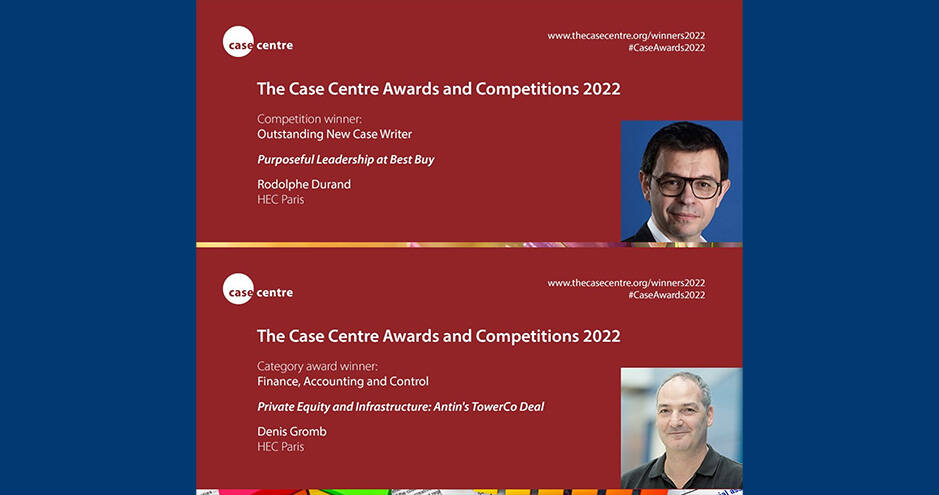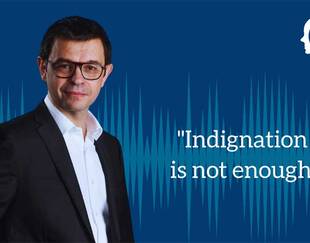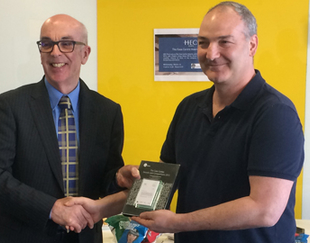Two HEC Professors Win Prestigious “Case Method Oscars” in 2022
For the first time in its 32-year history, the Case Centre, a leading independent case-publishing platform, has rewarded not one, but two, HEC academics in the same year for their outstanding case work in 2021. Professors Rodolphe Durand and Denis Gromb were recognized in the Outstanding New Case Writer, and the Finance, Accounting and Control categories, respectively.

The Bedfordshire-based Case Centre’s 11 annual awards honors academics around the world for the quality of their writing and teaching. The awards’ prestige is such that they have been nicknamed the “Case Oscars”. This year, they are of particular significance for the Centre’s director, Richard McCracken: “The 2022 Awards and Competitions highlight individual and school successes through one of the most disrupted times they have ever faced, providing a unique insight into what was being taught to business and management students… as case authors navigated a path through unprecedented pedagogical challenges, keeping research and education going.”
Denis Gromb, whose research and teaching focus on corporate finance, was first honored with a Case Centre “Oscar” back in 2018, when he impressed the international jury board with his case study on Prada’s Hong Kong IPO. This time round, Gromb’s case focuses on Antin Infrastructure Partners, a private equity firm investing in infrastructure businesses. It centers more specifically on the acquisition by an Antin-managed fund of over 2,000 cell towers put up for sale in 2012 by the French telecommunication giant Bouygues Telecom. His new case is one of the initiatives of the “Private Equity and Infrastructures” Chair, a joint venture between Antin I.P. and HEC Paris that Denis Gromb coordinates.
Template for Students
This 2021 case study was already in the works when he received the 2018 award. At the Case Centre ceremony four years ago, Gromb confided: “(The Antin case) looks like it is going to be great. There are so many doors to open around private equity, the role of infrastructures in society, human resources, macro-economy, politics,… And, when I’m done writing it, I look forward to it dropping on The Case Centre desk.”
True to his word, the evergreen academic delivered a case study that brings together all these disciplines and opens up a boulevard for teachers and business school students the world over. “This case is excellent and it has become my go-to case for my private equity sessions,” declared Pedro Saffi, Professor of Financial Economics at Cambridge Judge Business School. “The detailed valuation template allows students to understand all the steps behind a valuation in a structured yet deep way.” The case has been used across a range of programs. Gromb used it at HEC Paris with his MBA and executive students, but other schools have also found it beneficial for undergraduates. “The step-by-step instructions to build a simplified investment model helps students understand the model’s logic and they can use it the model in different scenarios.”
For Gromb, the study has been all the more gratifying in that it was the fruit of intense exchanges with Antin: “The Antin team educated me on all facets of their work: investor relations, investment decision making, legal and financial structure of deals, performance improvement, and so on. They were very generous with their time and knowledge, and this made all the difference.”
Read more about Denis Gromb's case on the Case Center's website
Purposeful Leadership and Cross-fertilization of Disciplines
When Professor Rodolphe Durand penned in his case study, “Purposeful Leadership at Best Buy”, he was also relying heavily on his strong complicity with Best Buy’s former CEO, Hubert Joly. The holder of the Joly Family Purposeful Leadership Chair delivered a new case study which allowed a better understanding of the characteristics of this original form of leadership. It also helped identify the conditions of success to impact positively the performance of a company. For such endeavor, Durand was awarded the Outstanding New Case Writer prize, a testimony of his remarkable work on the Purposeful Leadership program since its inauguration in 2018: “The program is a fabulous opportunity for our school,” he said. “It accelerates our work in uniting colleagues from different fields at HEC, going well beyond research into leadership. This cross-fertilization of disciplines is a catalyst to bring leadership theory forward – currently, it remains too dissociated from business reality. Research into purposeful leadership also allows us to see how it can bring competitive and environmental advantages to a firm which integrates it into its central strategy.”
Durand’s case study centers on Hubert Joly’s successful use of purposeful leadership principles to transform Best Buy. When Joly took over the American multinational consumer electronics retailer in 2012 it was teetering on the edge of bankruptcy. His infusion of purpose in all actions allowed the company to enjoy a spectacular resurrection. Durand’s case study follows the paths of fictional character Ana Goode after her nomination as Chief Purpose Officer. It encourages students to reflect on whether such a function is needed and encourages them to answer the question: should Ana accept it? As Durand, who is also Academic Director of the Society & Organizations Institute, says: “I think the case makes clear that purpose is not just a buzzword for a company. Under certain conditions, made explicit through the case, it is a vector of superior organizational performance. Hence, clear definitions, clear conditions, and clear limitations of the purpose-performance relationship make the case useful for students and fellow-academics.”
All in all, the case study encourages students to reflect on the conditions of success of Best Buy’s turnaround. These include ways to overcome organizational resistance, considerations on balancing short-term survival with long-term prospects and artful approaches to challenges like resisting the demands of shareholders.
Read more about Rodolphe Durand's case on the Case Center's website





